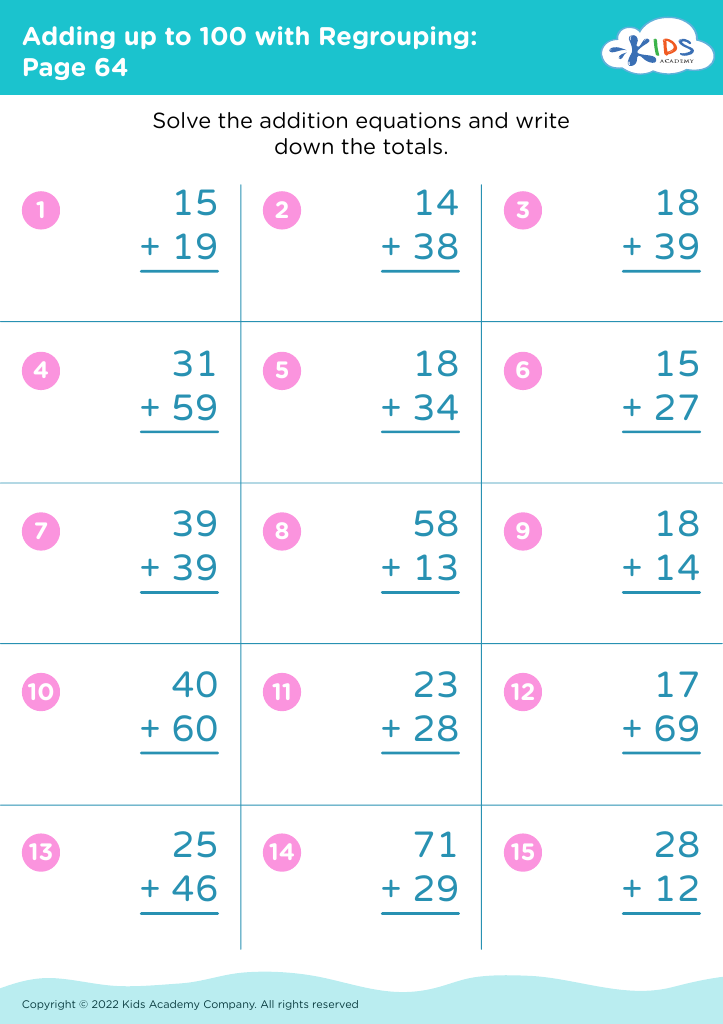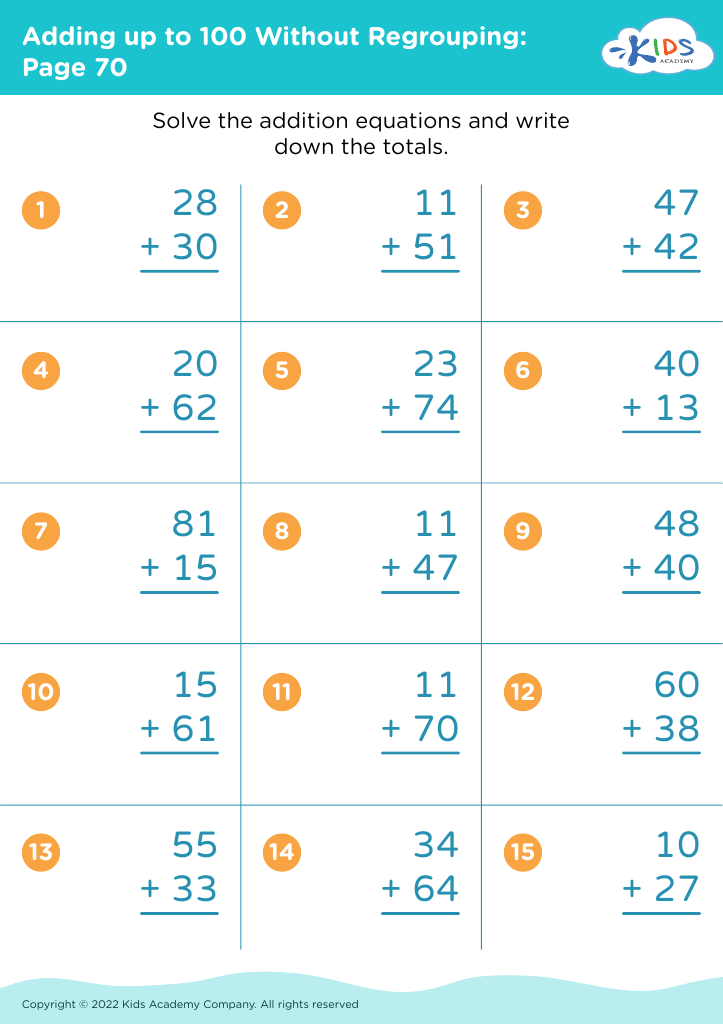Reinforce math concepts Addition & Subtraction Worksheets for Ages 3-7
3 filtered results
-
From - To
Give your little learners a head start in math with our engaging Addition and Subtraction Worksheets designed for ages 3-7! These worksheets focus on reinforcing fundamental math concepts through colorful, interactive activities that make learning fun. Tailored to enhance early numeracy skills, each worksheet allows children to practice and master essential addition and subtraction skills at their own pace. Parents and educators alike will appreciate the convenience of printable resources that promote independent learning. Foster a confident foundation in mathematics with our carefully crafted exercises, ensuring that your child develops both skill and enthusiasm for math early on. Explore the journey of arithmetic today!
Parents and teachers should prioritize reinforcing math concepts like addition and subtraction for children aged 3 to 7 because these foundational skills set the stage for later academic success. At this age, children are naturally curious and open to learning, making it the ideal time to instill a strong grasp of basic mathematical principles.
Fostering proficiency in addition and subtraction not only enhances their cognitive development but also boosts critical thinking, problem-solving abilities, and logical reasoning skills. These skills are not just integral to math; they also support learning in other subjects, such as science and literacy.
Furthermore, incorporating fun and engaging activities, such as games and hands-on experiences, helps to make learning enjoyable and builds a positive attitude toward math. This early engagement can reduce math anxiety later in life.
Lastly, a solid understanding of addition and subtraction is essential for everyday life skills, like managing money or cooking. By nurturing these skills at a young age, educators and parents empower children to navigate the world around them with confidence. Emphasizing the importance of addition and subtraction contributes to building a well-rounded, capable individual ready to face future academic challenges.























